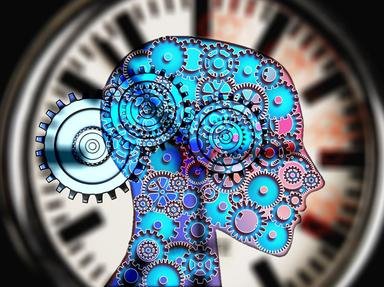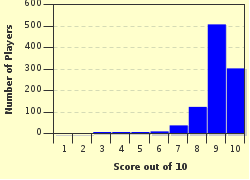Quiz Answer Key and Fun Facts
1. Which of the below is a sign that someone might have anorexia nervosa?
2. Which of these is NOT a side effect of anorexia?
3. Who can develop an eating disorder?
4. "Bulimia" is just another word for "anorexia".
5. An eating disorder is not deadly.
6. Are eating disorders hereditary?
7. Do mental or emotional disturbances ever play a role in eating disorders?
8. What symptom is NOT a factor in a formal diagnosis of an eating disorder?
9. How are eating disorders treated?
10. What should you do if you suspect someone you know has an eating disorder?
Source: Author
funnybuni
This quiz was reviewed by FunTrivia editor
crisw before going online.
Any errors found in FunTrivia content are routinely corrected through our feedback system.


